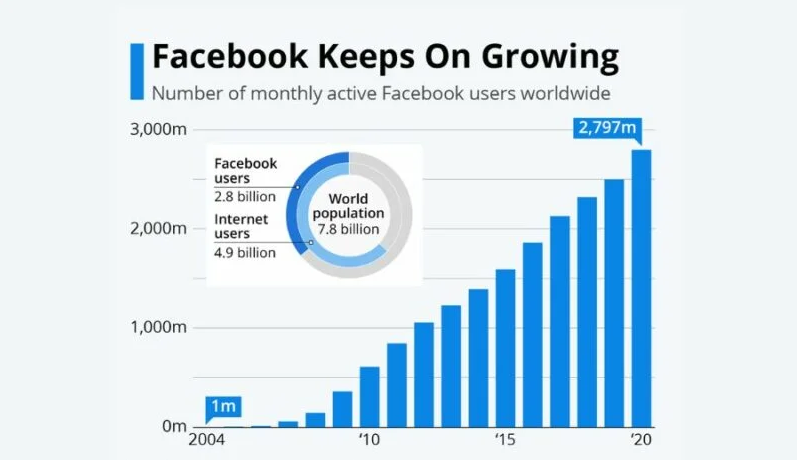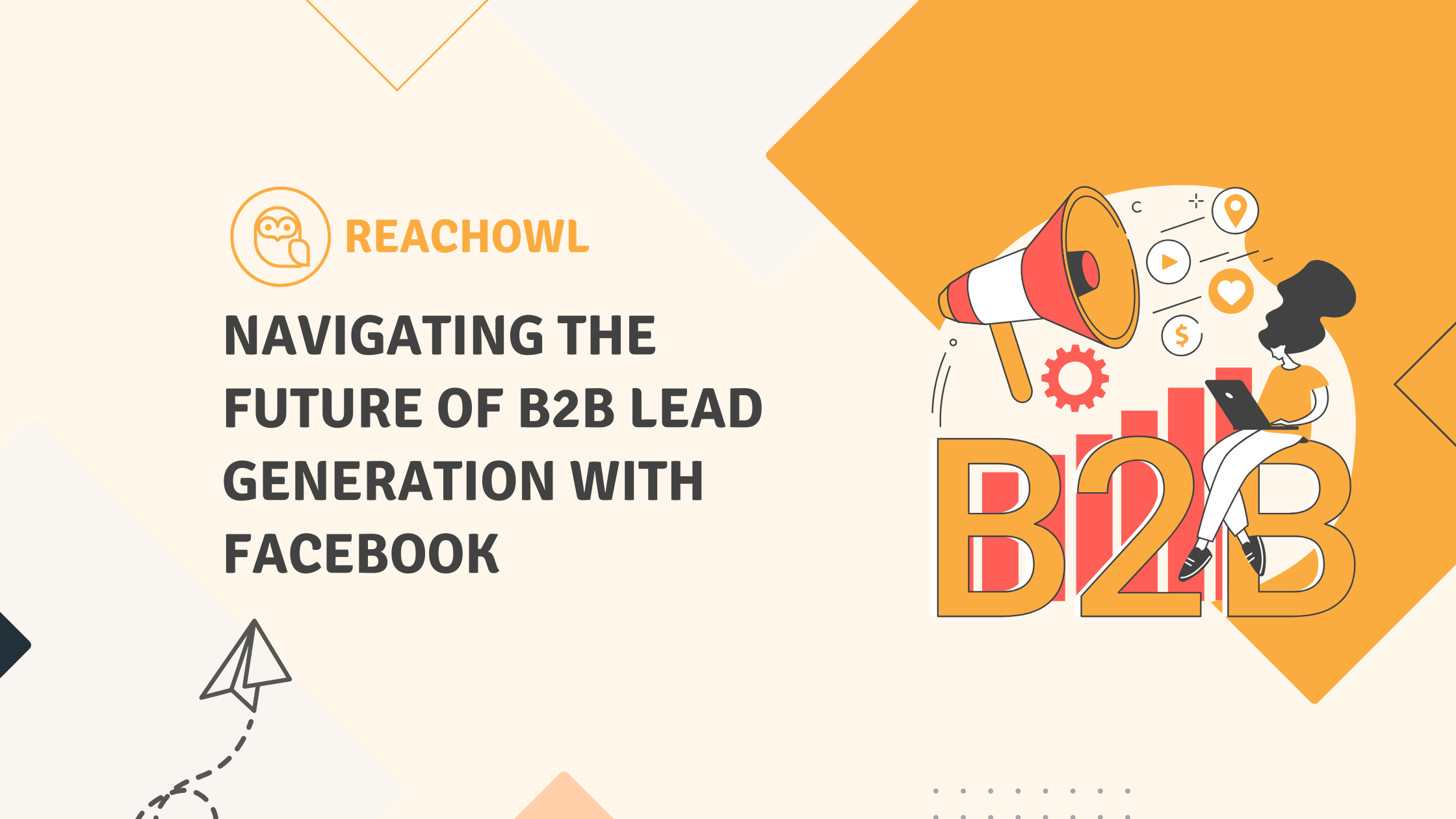Facebook has become a key player. Its extensive user base and advanced advertising features offer businesses a distinct opportunity to engage with potential clients.
In this blog, we’ll explore the dynamics of B2B lead generation in the Facebook-dominated era, examining the trends, strategies, and challenges that businesses face as they navigate this digital frontier.
Table of Contents
ToggleThe Evolution of B2B Lead Generation
Traditional vs. Modern Approaches
In the past, B2B lead generation involved methods like cold calling and trade shows. Now, digital platforms, especially Facebook, play an important role. This shift allows businesses to target a SBC global audience more precisely, presenting both challenges and opportunities.
The Facebook Advantage in B2B Lead Generation

1. Extensive User Base:
With over 2.8 billion monthly active users, Facebook offers unparalleled reach. Within this vast user base, decision-makers and professionals actively engage with content, providing businesses with a rich pool of potential leads.
2. Sophisticated Targeting:
Facebook’s ad platform is a valuable tool for B2B marketers due to its precise targeting options. Marketers can tailor their audience based on factors like demographics, interests, job titles, and company size, ensuring their message reaches the intended audience.
3. Visual and Interactive Content:
On Facebook, B2B interactions can be visually engaging and interactive. Businesses can use appealing content to showcase products, share success stories, and connect with their audience in ways that were not possible with traditional B2B marketing channels.
4. Lead Forms and Conversion Tracking:
Facebook’s lead generation forms simplify the process for users to express interest or seek more information without leaving the platform, reducing friction and increasing conversion rates. Robust analytics tools also empower businesses to track campaign performance and optimize for better results.
5. Remarketing Opportunities:
Remarketing on Facebook allows businesses to reconnect with users who have previously interacted with their content or visited their website. This enhances brand recall and keeps the business top of mind for potential leads.
Navigating Challenges in B2B Lead Generation on Facebook
While Facebook offers tremendous opportunities, navigating the Facebook-dominated future of B2B lead generation comes with its own set of challenges.

1. Privacy Concerns:
Increased awareness around data privacy has prompted changes in Facebook’s policies. Advertisers must navigate these privacy considerations and ensure that their lead generation practices comply with regulations like GDPR.
2. Algorithm Changes:
Facebook’s algorithms are dynamic and subject to frequent updates. Businesses must stay abreast of these changes to optimize their lead generation strategies continually.
3. Content Saturation:
With the sheer volume of content on Facebook, businesses face the challenge of standing out. Crafting compelling and unique content is essential to capturing the attention of potential B2B leads.
4. Balancing Paid and Organic Strategies:
While Facebook advertising offers precision and speed, businesses must strike a balance between paid strategies and organic content. An overreliance on paid advertising may lead to ad fatigue and diminish the impact of campaigns.
Strategies for Effective B2B Lead Generation on Facebook
To harness the power of Facebook for B2B lead generation, businesses should adopt a strategic and holistic approach:
1. Define clear objectives:
Clearly outline your B2B lead generation objectives. Are you aiming for brand awareness, lead generation, or direct sales? Defining objectives will guide your strategy and metrics for success.
2. Understand Your Audience:
In B2B, understanding your audience is important. Define your target audience based on industry, job titles, company size, and other relevant factors. This information will inform your content and targeting strategy.
3. Create compelling content:
Content is the cornerstone of B2B lead generation on Facebook. Craft content that addresses pain points, provides solutions, and establishes your business as an industry authority. This can include blog posts, whitepapers, case studies, and engaging visuals.
4. Use Facebook Ads:
Harness the power of Facebook’s advertising platform. Create visually appealing and informative ads tailored to your target audience. Experiment with different ad formats, such as carousel ads, video ads, and lead generation ads, to see what resonates best with your audience.
5. Optimize landing pages:
When users click on your ads, ensure that the landing pages are optimized for conversion. A seamless and user-friendly experience enhances the likelihood of capturing B2B leads.
6. Implement lead magnets:
Offer valuable resources, such as eBooks, webinars, or templates, as lead magnets. Use Facebook’s lead generation forms to facilitate easy sign-ups, reducing friction in the conversion process.
7. Engage with Your Audience:
Engagement is key on social media. Respond promptly to comments, direct messages, and inquiries. Actively participate in relevant groups and discussions to showcase your expertise and build relationships.
8. Invest in Remarketing:
Implement remarketing strategies to reconnect with users who have shown interest in your products or services. This reinforces your brand and keeps your business top of mind.
9. Regularly analyze and optimize:
Utilize Facebook’s analytics tools to track the performance of your campaigns. Analyze metrics such as click-through rates, conversion rates, and cost per lead. Use this data to refine your strategies for continuous improvement.
10. Balanced and Organic Strategies:
While paid advertising is powerful, don’t neglect organic strategies. Regularly share organic content, engage with your audience, and participate in relevant discussions to maintain a well-rounded presence on Facebook.
The Future of B2B Lead Generation: Adapting to Change
As the Facebook-dominated era of B2B lead generation unfolds, businesses must be adaptive. Continuous learning, staying informed about industry trends, and being willing to adjust strategies are essential components of success.
The future of B2B lead generation lies in the integration of technology, data-driven insights, and human-centric engagement. Businesses that can strike the right balance between automation and personalized interactions will thrive in this dynamic environment.
Conclusion
Navigating the Facebook-dominated future of B2B lead generation requires a strategic and multifaceted approach. Embrace the opportunities that Facebook offers, address the challenges thoughtfully, and stay committed to delivering value to your B2B audience. By doing so, businesses can position themselves for success in the digital marketing.

